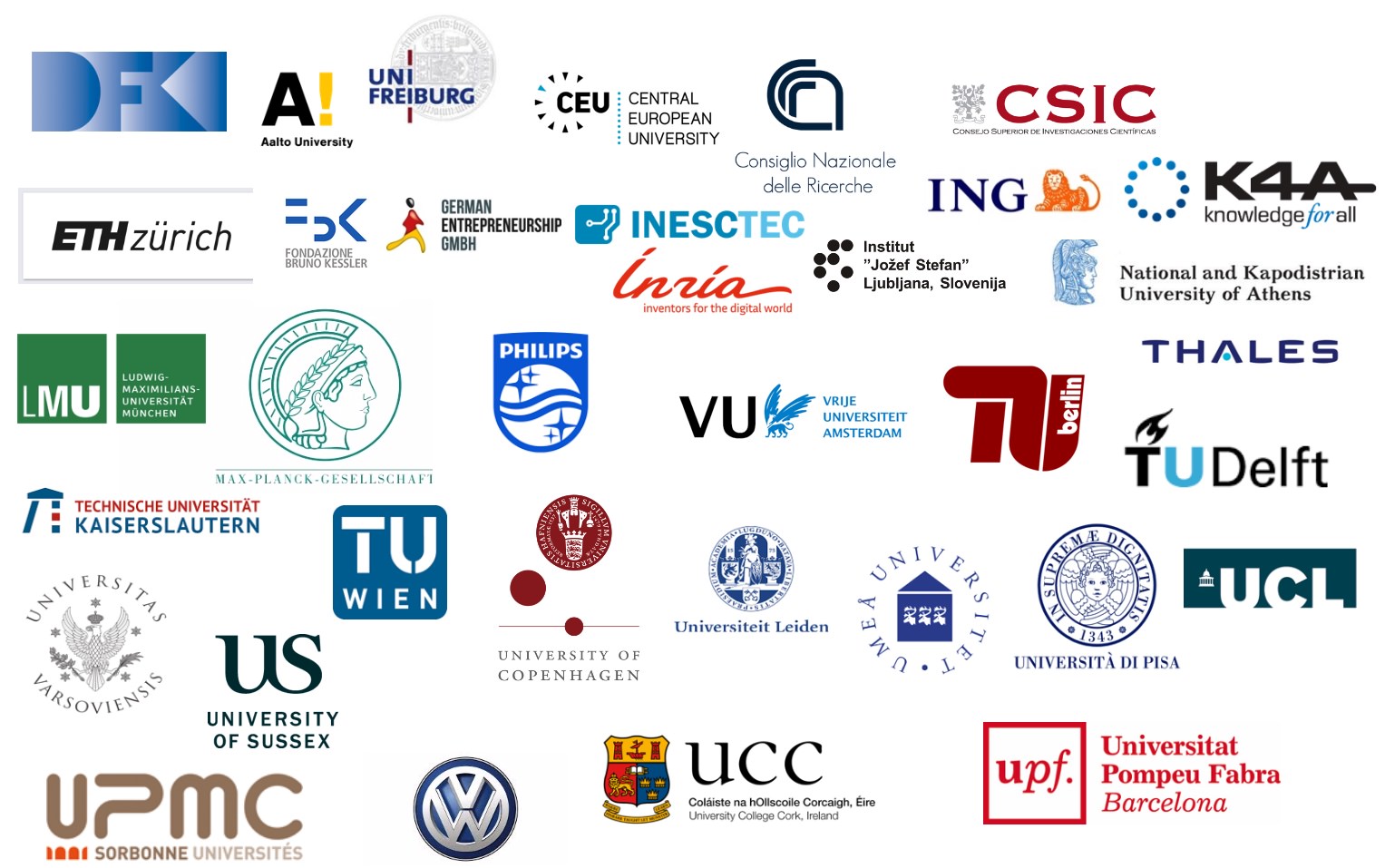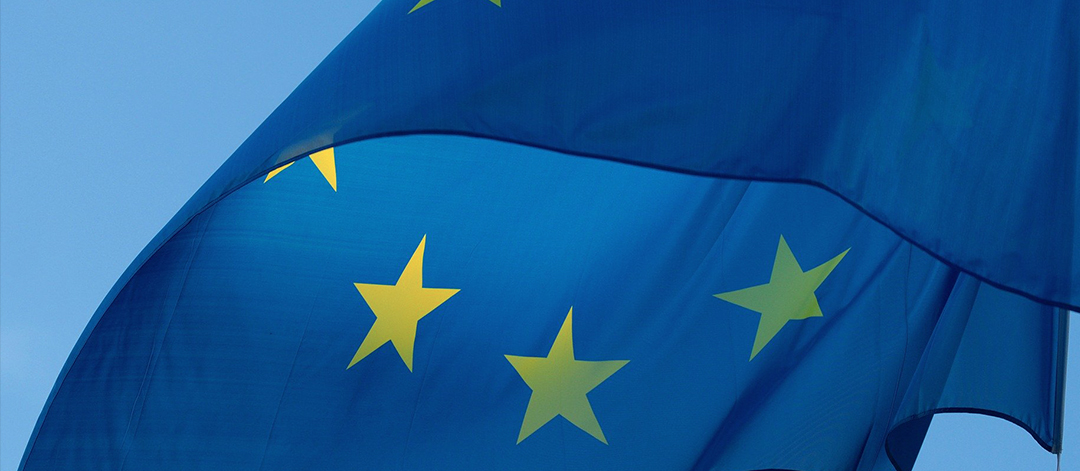Facilitating a European brand of trustworthy, ethical AI that enhances Human capabilities and empowers citizens and society
Location: European Parliament | Room PHS 5B001
Tuesday March 24th
16:30 - 20.00
Cocktail reception as of 19:00
| 16:30‑16:40 | Welcome and setting the stage
MODERATOR: Irena Joveva MEP, Committee on Culture and Education |
| 16:40‑17:10 | Theme: The Big Picture for European Artificial Intelligence
MODERATOR: Irena Joveva MEP, Committee on Culture and Education
|
| 17:20‑18:00 | Theme: HumaneAI Project defining the human aspects for AI
MODERATOR: Irena Joveva MEP, Committee on Culture and Education
|
| 18:00‑18:35 | Theme: Community Panel
MODERATOR: Irena Joveva MEP, Committee on Culture and Education
|
| 18:35‑18:45 | Theme: The way ahead
MODERATOR: Irena Joveva MEP, Committee on Culture and Education
|
| 19:00‑20:00 | Cocktail reception |
What is the purpose of the HumaneAI European Parliament event?
- Inform interested stake-holders about the vision, its relevance for Europe and challenges that need to be addressed to make it reality.
- Refine and improve the vision to make it best aligned with European policy goals.
- Define a way forward to ensure that the vision gets implemented and contributes to Europe’s long term competitiveness on the world stage and to maintaining and disseminating core European values.
- Send a strong public message about the commitment of all involved to ensure an overreaching positive impact of AI technology on European economy and society.
What is the rationale?
There is a strong consensus that artificial intelligence (AI) will bring forth changes that will be much more profound than any other technological revolution in human history. Depending on the course that this revolution takes, AI will either empower our ability to make more informed choices or reduce human autonomy; expand the human experience or replace it; create new forms of human activity or make existing jobs redundant; help distribute well-being for many or increase the concentration of power and wealth in the hands of a few; expand democracy in our societies or put it in danger.
Europe carries the responsibility of shaping the AI revolution. The choices we face today are related to fundamental ethical issues about the impact of AI on society, in particular, how it affects labor, social interactions, healthcare, privacy, fairness and security. The ability to make the right choices requires new solutions to fundamental scientific questions in AI and human-computer interaction (HCI).
The HumanE AI project is a coordination action funded by Future and Emerging Technologies (FET) program dedicated to shaping the AI revolution in a direction that is beneficial to humans both individually and societally, and that adheres to European ethical values and social, cultural, legal, and political norms. As core scientific challenge we have identified the development of robust, trustworthy AI systems capable of what could be described as “understanding” humans, adapting to complex real-world environments, and appropriately interacting in complex social settings. The overall vision is to facilitate AI systems that enhance human capabilities and empower individuals and society as a whole while respecting human autonomy and self-determination.
The HumanE AI project has:
- Developed and consolidated a concrete research agenda for the above vison,
- Built broad European community with the competences needed to implement that agenda,
- Developed a concept for facilitating a broad socio-economic impact of the proposed research agenda and
- Anchored the agenda a European ethical framework.
What is the vision?
This vision closely follows the ambitions articulated by the EC in its Communication on AI: A European brand of AI that, by design, is trustworthy, adheres to European ethical, political and social norms and focuses on the benefit to European citizens as individuals, European society and European economy. At the hearth of our vision is the understanding that those ambitions can neither be achieved by legislation or political directives alone nor by traditional research in established disciplinary “silos”. Instead it needs fundamentally new solutions to core research problems at the Interface of AI, human-computer interaction (HCI) and social science, combining theory, real world use cases and innovation oriented research.
What are we trying to achieve?
The HumaneAI community aims to develop the scientific foundations and technological breakthroughs needed to shape the ongoing artificial intelligence (AI) revolution to fit the above vision. Key challenges include: learning complex world models; building effective and fully explainable machine learning systems; adapting AI systems to dynamic, open-ended real-world environments achieving in-depth understanding of humans and complex social contexts; and enabling self-reflection within AI systems.
What will be the impact ?
The HumanE AI community has mobilized a research landscape far beyond the direct project funding and brought together a unique innovation ecosystem. This has the potential for significant disruption across its socio-economic impact areas, including Industry 4.0, health & well-being, mobility, education, policy and finance. We aim to spearhead the efforts required to help Europe achieve a step-change in AI uptake across the economy.
Why are we the best to do it?
The project consortium, with 35 partners from 17 countries, and 4 large industrial members, has defined details of all aspects necessary to implement a full scale European action to mobilize major scientific, industrial, political and public support for the vision.

Location: European Parliament | Room PHS 5B001
Tuesday March 24th
16:30 - 20.00
Cocktail reception as of 19:00
| 16:30‑16:40 | Welcome and setting the stage
MODERATOR: Irena Joveva MEP, Committee on Culture and Education
|
| 16:40‑17:10 | Theme: The Big Picture for European Artificial Intelligence
MODERATOR: Irena Joveva MEP, Committee on Culture and Education
|
| 17:20‑18:00 | Theme: HumaneAI Project defining the human aspects for AI
MODERATOR: Irena Joveva MEP, Committee on Culture and Education
|
| 18:00‑18:35 | Theme: Community Panel
MODERATOR: Irena Joveva MEP, Committee on Culture and Education
|
| 18:35‑19:00 | Theme: The way ahead
MODERATOR: Irena Joveva MEP, Committee on Culture and Education
|
| 19:00‑20:00 | Cocktail reception |




